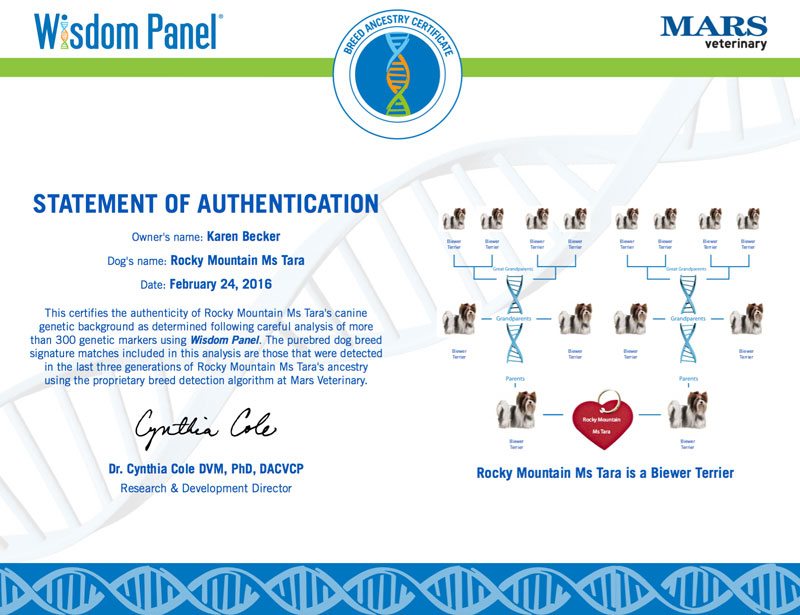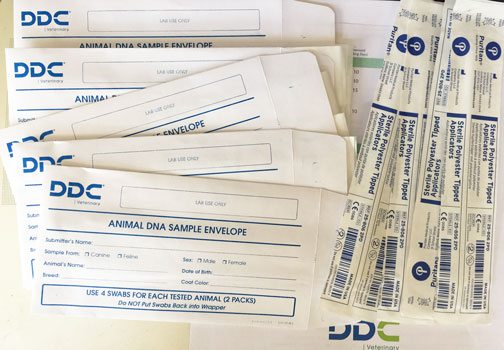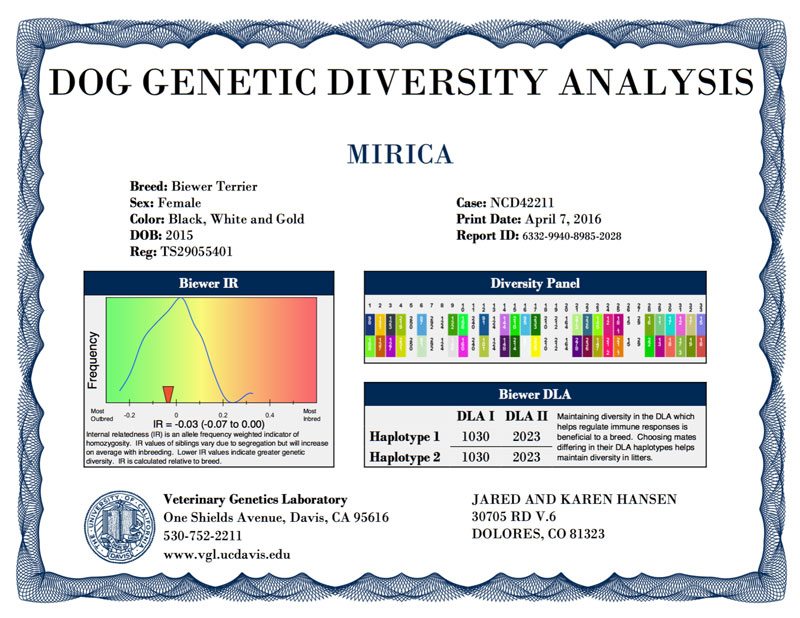Producing good quality Biewer Terrier puppies doesn’t mean to import a number of dogs from Europe, take cute pictures and advertise the puppies as good quality Champion Line Puppies. Rocky Mountain Biewer Terriers has imported and tested 100+ Biewer Terrier Puppies and adult Biewers to form an extraordinary breeding program. Less then half the imported dogs from Champion Lines met the requirements to enter the Rocky Mountain Biewer Terriers Breeding Program.
What are these Requirements?
We usually import the entire litter or several siblings out of the same litter at the age of 16 weeks for our breeding program. The overall appearance and structure of the European puppies can only be evaluated from pictures and short videos. The bite can be evaluated for existing overshot or undershot but not for a correct scissor bite because the puppy teeth are not fully replaced by adult teeth at the age of 4 months. Some dogs have a very solid and stocky structure. We call them little chunks because they feel heavy and healthy.
But there are also the skinny ones. The skinny kind feels like a little bird when you hold it. They usually have longer bodies and you can feel their ribcage and the bumps on their spine. Feeding these “bird bone pups” a special diet does not change their structure or overall appearance. They are built this way and we do not prefer to breed them. They will not produces solid and stocky Biewer Terrier Puppies.

Pure Bred Biewer Terrier Mars Wisdom Panel DNA Test Result
The next step would be DNA and Health tests.
If the puppy has a good overall appearance and structure, a nice tail and ear set, a outgoing and happy personality, good coloring and a thick fluffy coat, then we perform a DNA breed test to make sure it is a pure bred Biewer Terrier and not recently mixed with a Yorkshire Terrier, Maltese or any other breed. We prefer pure Biewer Terrier Puppies from at least 5 generations of Biewer Terriers only. We use the Wisdom Panel 3.0 MARS Test to verify that the dog is a pure bred Biewer Terrier.

Mars Wisdom Panel 3.0 Breed DNA Test
If the dog passes the MARS Test as pure Biewer Terrier it will get DNA profiled and tested for inherited coat color genes. Many standard colored Biewer Terriers carry the liver gene (chocolate, biro, brown) or the recessive red gene (gold, gold dust, blonde). It is important to know what color genes each dog inherited.
If you breed 2 standard colored Biewer Terriers that inherited the gold gene from their ancestors, it would be possible that they would have gold colored Biewer Terriers and Standard Biewer terriers in the same litter.
These gold-white colored dogs are also called Gold Dust Biewer Terriers. The same is of course possible when you breed Standard colored Biewer Terriers that carry the chocolate gene.
There are even Biewer Terriers that carry both genes, gold and chocolate but they have a standard colored coat.

Canine DNA Test Kit
These dogs would be able to have Standard Biewer Terrier Puppies, Gold Dust Biewer Terrier Puppies and Chocolate Biewer Terrier Puppies in the same litter. We like to know what to expect and are testing all our dogs for these color genes. The puppies being siblings does not mean that they inherited the same color genes. Once we know that the imported Biewer Terrier is pure bred and are aware of the inherited color genes, we also do health DNA Testing. The 2 main tests are the Canine-Disease-Hyperuricosuria DNA Test and the Canine-Disease-Degenerative Myelopathy DNA Test. Hyperuricosuria (HUU) means elevated levels of uric acid in the dog’s urine. This trait puts the dogs at risk to form stones in their bladders or sometimes in their kidneys. These stones often must be removed surgically and can be difficult to treat. Hyperuricosuria is inherited and can occur in any breed.
The Biewer Terrier is a new Breed and some pedigrees show a close line breeding. The Biewer Terrier Diversity Analysis gives a good overview of the dog’s diversity.
Biewer Terriers that successfully passed these tests are eligible for our breeding program.

Biewer Terrier Diversity Analysis

I sent you an email